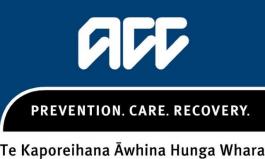About Choices

Counselling is about exploring what is important to you.
At Choices Counselling Kathryn will work with you to create space for ethical and respectful conversation in order for you to develop alternative understandings, preferences, hopes and purposes in your life. Kathryn is experienced with helping people with addictions, anxiety, depression, relationships, stress and much more.
You can choose to bring a support person to your session or come along by yourself; confidentiality is an essential part of the counselling process.
Most consultations at Choices Counselling take an hour although by prior arrangement longer sessions can be accommodated. What we talk about is up to you, Kathryn will ask questions that help make your story clearer while also exploring the things that are important to you.
Choices Counselling is ACC Registered (Sensitive claims).
Narrative therapy
“Narrative therapy seeks to be a respectful, non-blaming approach to counselling which centres people as the experts in their own lives. It views problems as separate from people and assumes people have many skills, competencies, beliefs, values, commitments and abilities that will assist them to reduce the influence of problems in their lives”. Alice Morgan
When people decide to consult a therapist, it is because they are experiencing difficulty or problems in their lives. When meeting with a therapist, they will often begin by telling the therapist about many events in the life of the problem for which they are seeking help. Commonly problems are seen as a ‘fault’ in the person which can result in an inability to see the alternate story of ability, strengths and skills. Narrative therapy helps reframe the feelings of fault and helps people dissect the ‘problems’ from a more removed position to gain clarity.
ACT (Acceptance Commitment Therapy)
ACT is a behavioural therapy based on values guided action. It uses practical ‘tools’ that are easy to incorporate into everyday life to help handle difficult and painful thoughts and feelings so that they have less impact and influence.
ACT processes help clarify what is truly meaningful to us (values) and use that knowledge to guide us to take action that leads to meaningful change in our lives.
The objective of ACT is not an elimination of difficult feelings rather, it is to learn to be present with what life brings and to “move toward valued behaviour”. Acceptance and commitment therapy invites people to open up to unpleasant feelings, learn not to overreact to them, and change the unhelpful conclusions about self that often result.
EMDR (Eye movement Desensitization and Reprocessing)
EMDR) is a psychotherapy that enables people to heal from the symptoms and emotional distress that are the result of disturbing life experiences. Repeated studies show that by using EMDR therapy people can experience the benefits of psychotherapy that once took years to make a difference. It is widely assumed that severe emotional pain requires a long time to heal. EMDR therapy shows that the mind can in fact heal from psychological trauma much as the body recovers from physical trauma. When you cut your hand, your body works to close the wound. If a foreign object or repeated injury irritates the wound, it festers and causes pain. Once the block is removed, healing resumes. EMDR therapy demonstrates that a similar sequence of events occurs with mental processes. The brain’s information processing system naturally moves toward mental health. If the system is blocked or imbalanced by the impact of a disturbing event, the emotional wound festers and can cause intense suffering. Once the block is removed, healing resumes. Using the detailed protocols and procedures learned in EMDR therapy training sessions, clinicians help clients activate their natural healing processes.
EMDR has been shown to be helpful in managing anxiety, depression, phobia and many other problem situations.
Confidentiality
Everything a client shares with me will remain confidential unless they give me permission to share it or I believe they, or someone else, is at serious risk of imminent harm. In this case, I would discuss with the client/s who else needs to be involved. In addition to these situations, as a practicing counsellor under the New Zealand Association of Counsellors (NZAC) Code of Ethics ( www.nzac.org.nz), I am required to attend supervision on a regular basis. Supervision provides an opportunity for me to discuss and receive feedback on my work. However at no time would clients be identifiable from the material I discuss in supervision sessions.
Documentation of counselling
I will keep written records of counselling sessions. These will be stored in a locked filing cabinet and clients will be welcome to review material related to them.



